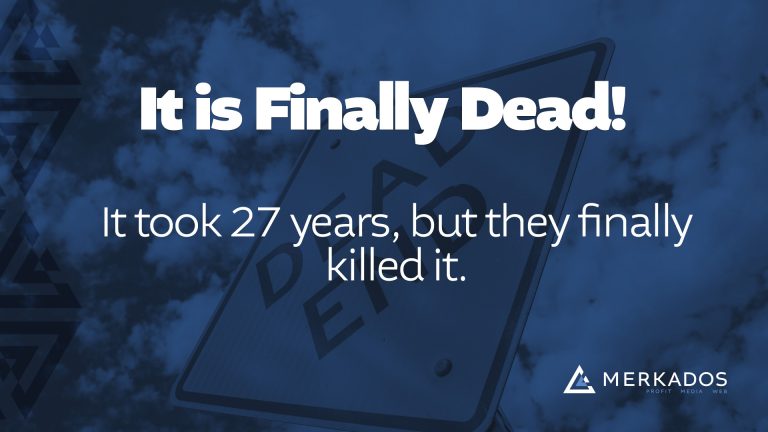When Mrs. Fox talks everybody listens. Indeed if you are in the SEM/SEO world you need to pay attention to what the “owners” of the game have to say. And usually, what they have to say is very much common sense. Don’t do something that you know is intended to manipulating the algos. Now, what happens in real life is that every single SEO manipulates the Algos. What? you may say… I don’t do that. Well, Search Engine Optimization means optimizing a web site to appear and to increase ranking in the search engines. Linkbaiting, Text-link-ads, directory submission, press releases, articles, increase of site content, unique-meta-tags, include your words in the page with HTML! I think, and again, this is my humble opinion, the search engines are playing the same game with SEOs. If you give recommendations on how to get indexed and how to increase ranking, then the message that you are sending is: do it.
The part that I don’t like is that there are many legitimate small, mom-pops, stores out there that don’t know the game. They get into the arena and they find 1 million consultants, some of them promise first page listings, some promise other things. Nobody knows the rules, because the algos are “private”, so basically what we know are just parameters. We more or less, know what we are doing. But not really. I am not saying that our efforts are not valuable, what I am saying is that SEO is all about a set of rules. Rules that cost money to implement. Rules that sometimes are not 100% clear.
The last time that I looked around I saw people still talking about the Florida Update and what not! Google recommends to not pay attention to the search engines, just do what you are going to do for the end users. What they fail to say is that if you forget about search engines you might forget about search engines! Search engines provide an average of 85% or more of web site traffic and 55% of that traffic comes from Google. Meaning that if you increase your ranking for well used keywords in your industry, it could mean the difference between success or looking for another 9 to 5.
For nobody is a secret that first page position in certain keywords can lead to lots of money. So why would anybody not make every possible effort to understand how search engines really work?
Friends, Search Engines are at the top of the game. People use search engine more than ever. People don’t use second and third page results anymore. Officially, SEO has become a paid industry. You pay for copywriters, for link builders, for paid advertising, for social bookmarking and a couple of days ago you would pay for Wikipedia mentions.
I love Google because in my eyes they are a good company. It seems like their employees are happy and proud of being there. I like Google because they have a set of principles and they try to stick to them. I would like for everybody to appear perfectly ranked for free to everybody looking for anything. The value is created when some don’t rank well (sounds awful but is the truth). If there was no competition and you could rank number 1 for any term for free, then Google wouldn’t exist; nobody would pay for sponsored links.
Should we go back to the drawing board and find another magic pill? Wow, I honestly remember the first time I typed a URL in a Netscape Browser… it was so exciting! Now people look at web design as something that a kindergarten kid can do during his lunch.
Google! Do something! Somebody, do something! Invent something so that all of us can have the same excitement! I wish I could think of something myself… maybe some day.
For this century, I am including a copy of Vanessa’s recommendations for a better rank in Google:
Posted by Vanessa Fox
2/12/2007 04:22:00 PM
If you’re planning to be at Search Engine Strategies London February 13-15, stop by and say hi to one of the many Googlers who will be there. I’ll be speaking on Wednesday at the Successful Site Architecture panel and thought I’d offer up some tips for building crawlable sites for those who can’t attend.
Make sure visitors and search engines can access the content
- Check the Crawl errors section of webmaster tools for any pages Googlebot couldn’t access due to server or other errors. If Googlebot can’t access the pages, they won’t be indexed and visitors likely can’t access them either.
- Make sure your robots.txt file doesn’t accidentally block search engines from content you want indexed. You can see a list of the files Googlebot was blocked from crawling in webmaster tools. You can also use our robots.txt analysis tool to make sure you’re blocking and allowing the files you intend.
- Check the Googlebot activity reports to see how long it takes to download a page of your site to make sure you don’t have any network slowness issues.
- If pages of your site require a login and you want the content from those pages indexed, ensure you include a substantial amount of indexable content on pages that aren’t behind the login. For instance, you can put several content-rich paragraphs of an article outside the login area, with a login link that leads to the rest of the article.
- How accessible is your site? How does it look in mobile browsers and screen readers? It’s well worth testing your site under these conditions and ensuring that visitors can access the content of the site using any of these mechanisms.
Make sure your content is viewable
- Check out your site in a text-only browser or view it in a browser with images and Javascript turned off. Can you still see all of the text and navigation?
- Ensure the important text and navigation in your site is in HTML, not in images, and make sure all images have ALT text that describe them.
- If you use Flash, use it only when needed. Particularly, don’t put all of the text from your site in Flash. An ideal Flash-based site has pages with HTML text and Flash accents. If you use Flash for your home page, make sure that the navigation into the site is in HTML.
Be descriptive
- Make sure each page has a unique title tag and meta description tag that aptly describe the page.
- Make sure the important elements of your pages (for instance, your company name and the main topic of the page) are in HTML text.
- Make sure the words that searchers will use to look for you are on the page.
Keep the site crawlable
- If possible, avoid frames. Frame-based sites don’t allow for unique URLs for each page, which makes indexing each page separately problematic.
- Ensure the server returns a 404 status code for pages that aren’t found. Some servers are configured to return a 200 status code, particularly with custom error messages and this can result in search engines spending time crawling and indexing non-existent pages rather than the valid pages of the site.
- Avoid infinite crawls. For instance, if your site has an infinite calendar, add a nofollow attribute to links to dynamically-created future calendar pages. Each search engine may interpret the nofollow attribute differently, so check with the help documentation for each. Alternatively, you could use the nofollow meta tag to ensure that search engine spiders don’t crawl any outgoing links on a page, or use robots.txt to prevent search engines from crawling URLs that can lead to infinite loops.
- If your site uses session IDs or cookies, ensure those are not required for crawling.
- If your site is dynamic, avoid using excessive parameters and use friendly URLs when you can. Some content management systems enable you to rewrite URLs to friendly versions.
See our tips for creating a Google-friendly site and webmaster guidelines for more information on designing your site for maximum crawlability and usability.


